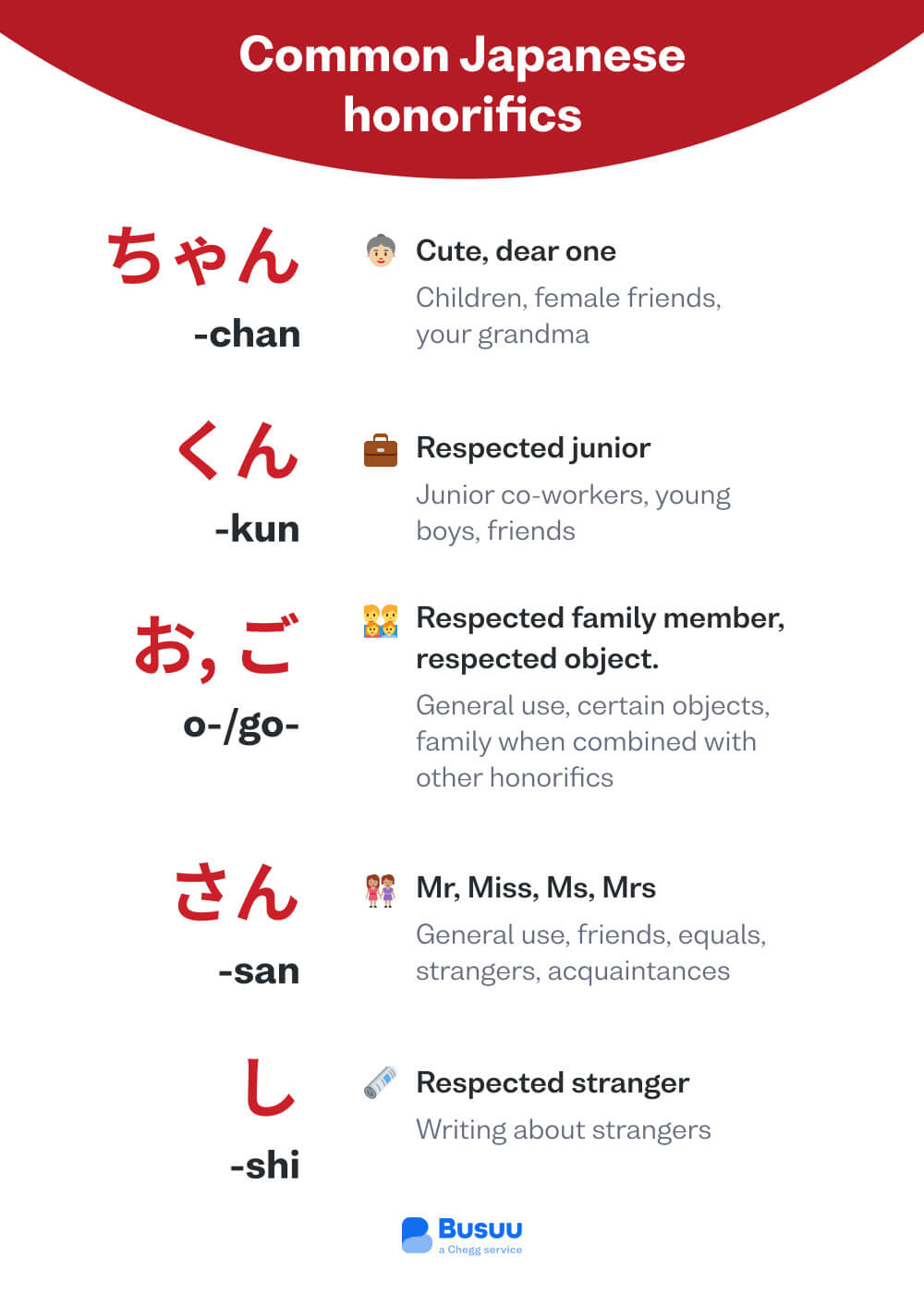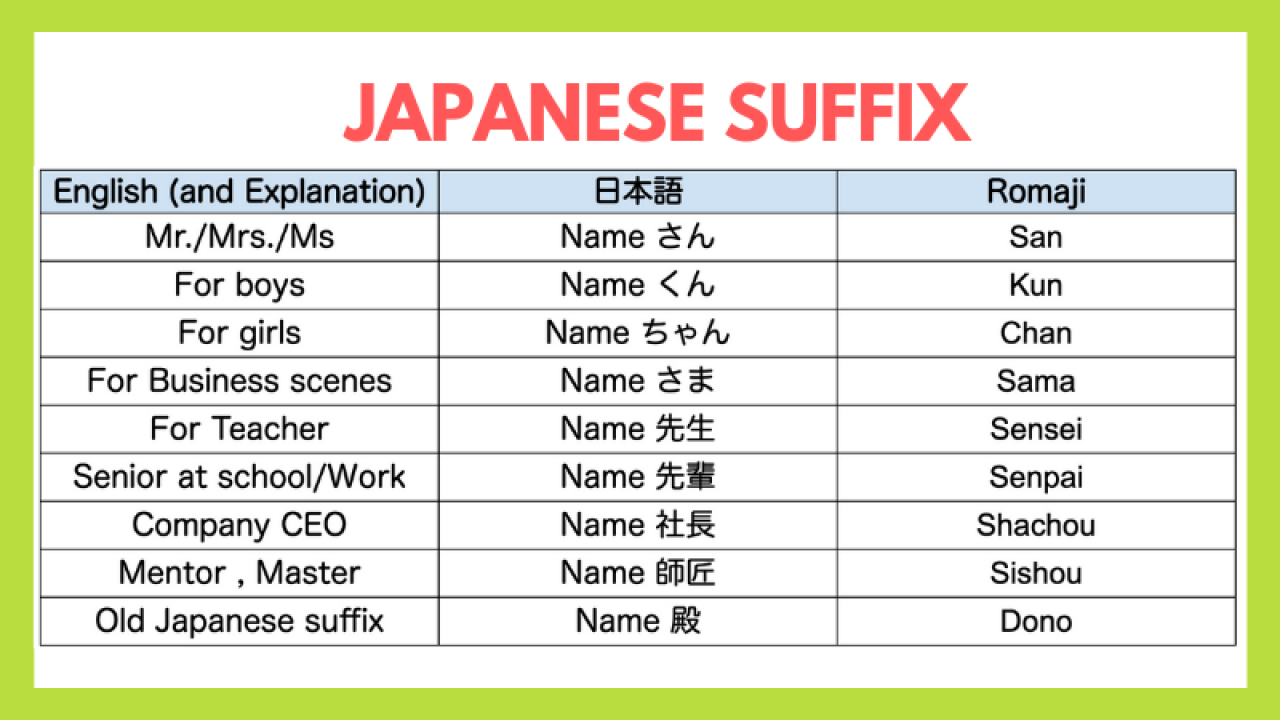Hello, in this particular article you will provide several interesting pictures of what does san mean in anime. We found many exciting and extraordinary what does san mean in anime pictures that can be tips, input and information intended for you. In addition to be able to the what does san mean in anime main picture, we also collect some other related images. Find typically the latest and best what does san mean in anime images here that many of us get selected from plenty of other images.
![What do Chan, San, and Kun mean in Japanese? [Honorific Guide] (2022) What do Chan, San, and Kun mean in Japanese? [Honorific Guide] (2022)](https://quotetheanime.com/wp-content/uploads/2021/04/1.-San-meaning-In-Japanese-1024x1024.jpg) We all hope you can get actually looking for concerning what does san mean in anime here. There is usually a large selection involving interesting image ideas that will can provide information in order to you. You can get the pictures here regarding free and save these people to be used because reference material or employed as collection images with regard to personal use. Our imaginative team provides large dimensions images with high image resolution or HD.
We all hope you can get actually looking for concerning what does san mean in anime here. There is usually a large selection involving interesting image ideas that will can provide information in order to you. You can get the pictures here regarding free and save these people to be used because reference material or employed as collection images with regard to personal use. Our imaginative team provides large dimensions images with high image resolution or HD.
 what does san mean in anime - To discover the image more plainly in this article, you are able to click on the preferred image to look at the photo in its original sizing or in full. A person can also see the what does san mean in anime image gallery that we all get prepared to locate the image you are interested in.
what does san mean in anime - To discover the image more plainly in this article, you are able to click on the preferred image to look at the photo in its original sizing or in full. A person can also see the what does san mean in anime image gallery that we all get prepared to locate the image you are interested in.
 We all provide many pictures associated with what does san mean in anime because our site is targeted on articles or articles relevant to what does san mean in anime. Please check out our latest article upon the side if a person don't get the what does san mean in anime picture you are looking regarding. There are various keywords related in order to and relevant to what does san mean in anime below that you can surf our main page or even homepage.
We all provide many pictures associated with what does san mean in anime because our site is targeted on articles or articles relevant to what does san mean in anime. Please check out our latest article upon the side if a person don't get the what does san mean in anime picture you are looking regarding. There are various keywords related in order to and relevant to what does san mean in anime below that you can surf our main page or even homepage.
 Hopefully you discover the image you happen to be looking for and all of us hope you want the what does san mean in anime images which can be here, therefore that maybe they may be a great inspiration or ideas throughout the future.
Hopefully you discover the image you happen to be looking for and all of us hope you want the what does san mean in anime images which can be here, therefore that maybe they may be a great inspiration or ideas throughout the future.
 All what does san mean in anime images that we provide in this article are usually sourced from the net, so if you get images with copyright concerns, please send your record on the contact webpage. Likewise with problematic or perhaps damaged image links or perhaps images that don't seem, then you could report this also. We certainly have provided a type for you to fill in.
All what does san mean in anime images that we provide in this article are usually sourced from the net, so if you get images with copyright concerns, please send your record on the contact webpage. Likewise with problematic or perhaps damaged image links or perhaps images that don't seem, then you could report this also. We certainly have provided a type for you to fill in.
 The pictures related to be able to what does san mean in anime in the following paragraphs, hopefully they will can be useful and will increase your knowledge. Appreciate you for making the effort to be able to visit our website and even read our articles. Cya ~.
The pictures related to be able to what does san mean in anime in the following paragraphs, hopefully they will can be useful and will increase your knowledge. Appreciate you for making the effort to be able to visit our website and even read our articles. Cya ~.
 So cute! Japanese suffixes chan, kun, san etc Totally FREE Japanese
So cute! Japanese suffixes chan, kun, san etc Totally FREE Japanese
 What Does San Mean in Japanese? When, Why & How to Use it
What Does San Mean in Japanese? When, Why & How to Use it
 What does San mean in Japanese? When and how to use it? - Learn
What does San mean in Japanese? When and how to use it? - Learn
 What does san mean in Japanese: Name Honorifics in Japanese: Going
What does san mean in Japanese: Name Honorifics in Japanese: Going

